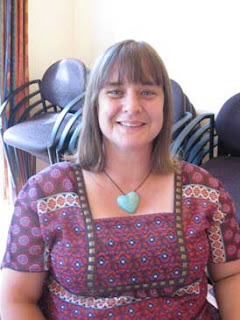We recently received this an email from Julie Peal, an early childhood teacher at Wellington's Victoria University Law School.
Just had to share with you all an amazing bit of serendipity, as you may know I work in the old government building which is now the Victoria University Law School, it is open to anyone to walk through, with many tourists passing through the halls each day. As I walked out of my centre with some children (heading outside to our play ground) we met an elderly gentleman in the hall and sparked up a conversation with him.
Just had to share with you all an amazing bit of serendipity, as you may know I work in the old government building which is now the Victoria University Law School, it is open to anyone to walk through, with many tourists passing through the halls each day. As I walked out of my centre with some children (heading outside to our play ground) we met an elderly gentleman in the hall and sparked up a conversation with him.
His gentle and respectful conversations with the children led me to ask him if he was or had been a teacher, to which he replied “not really” I only work with masters students now. He said during his early working life he had taught in so called third world countries in Africa and the Philippines and now worked at the University of Sussex.
He said he was visiting from Britain but was born in NZ, he asked about the centre and was most impressed to know that we were located in such close proximity to the children’s families. He spoke at length on how important it was for woman to be supported to be educated and in work, while knowing their children were close by. This led to the story of his mothers struggle to be educated at a time when women were not expected to work outside the home.
Not knowing who he was I innocently ask what it was like when he was a child to which he replied that his mother had been active in supporting early childhood education and had set up an early childhood centre in the 50s. Long story short the interesting and interested elderly gentleman was Anthony Somerset son of Gwen Somerset, who was a pioneer of Early childhood Education in New Zealand and wrote vital play amongst other thinks.
We then had an amazing kororo about Piaget whom he thought underestimated young children’s ability to understand because he tested their knowledge out of the context of their lives. Basically he said Piaget didn’t see things through the child’s eyes.
Vygotsky was our next topic, which led to how culture impacts children’s learning. Tony (as he asked me to call him) then proceeded to tell me a story of recently looking after a young boy of just 3 years, they had gone for a walk and came across a tractor, climbing onto the tractor the young boy noticed a box attached to it and asked if they could open it. Tony’s reply was that the farmer may not like them to do that. The child noticing the box had writing on the lid pointed to it and said that says we are allowed to open the box.
On hearing this creative problem solving Tony agreed to the boy opening the box. Inside the box was a rope which the child use to fish with off the tractor. As this imaginary play came to an end, on his own initiative the boy packed the rope into the box and shut the lid, saying “now the farmer will be happy”.
Tony then unpacked for me all the learning this little story held, as if he were writing a learning story. It included allowing the child’s curiosity to lead their learning, understanding that written script could communicate meaning (although it was in Russian Cyrillic script) but most importantly the empathy for Tony’s feelings that the farmer would not like them to open the box. Tony felt by ensuring that the rope was safely returned to its place and saying the farmer would be happy, the child seemed to have shown an understanding of the ethical issues involved. He wondered what Piaget would make of this child’s ability to see this problem from so many different perspectives, his own, Tony’s and the farmers.
What an inspiration to hear this man (now well into his 80s) speak so knowledgeably and passionately on the role of woman and young children’s learning As a person who has an interest in history and the way it shapes our learning and teaching this was a truly fortunate meeting with a person who is so closely connected with two people ( Gwen Somerset and her brother Riwi Ally ) who have played such significant and cutting edge roles in education. In sharing a little of his own Whakapapa it was treasured insight into just how far early childhood education has come and how important it is in this time of uncertainty to hold tight to what we have achieved.
It was serendipitous that I happened to have Sunshine and Shadow , Gwen Somerset’s autobiography sitting on my desk at home waiting to be read, meeting Tony who is from this family of (and is himself) a great educationist provided a great incentive to make time to do it.
Just thought this was a story worth sharing with colleagues who make such a difference in the field of education for young children, such as yourselves.
All the very best
Julie
Just thought this was a story worth sharing with colleagues who make such a difference in the field of education for young children, such as yourselves.
All the very best
Julie

No comments:
Post a Comment